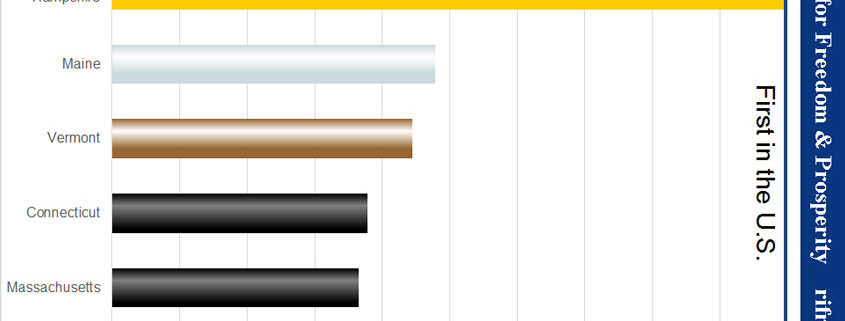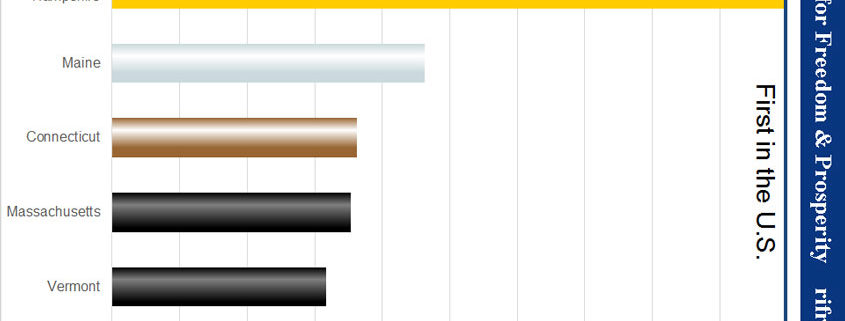FOR IMMEDIATE RELEASE: March 15, 2017
Unemployment Rate Would be 12.4% if Labor Force Matched Nation
Inadequacy of Unemployment Rate Clouding Political Discourse
Deteriorating Labor Force Produces Positive Rate?
Providence, RI — Donald Trump may have been correct in his skepticism of apparently positive national unemployment rate news during the 2016 Presidential Campaign. As the RI Center for Freedom & Prosperity has long argued, and once again backed by the latest employment data, negative declines in the state’s labor force have led to positive improvements in Rhode Island’s official unemployment rate. Yet, a broader look employment actually shows that the Ocean State remains mired as the third-worst state nationally on the Center’s January Jobs & Opportunity Index (JOI).
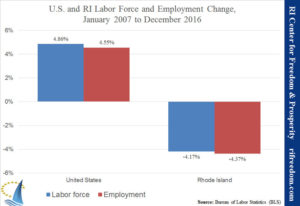 Despite boasts of a strengthening state economy based on its January unemployment rate of 4.7%, a closer look at the data reveals a major underlying problem that is often overlooked: Since 2007 U.S. employment and labor force participation has risen by 4-5%, while Rhode Island saw an opposite decrease by 4-5% in these same categories over the same time period.
Despite boasts of a strengthening state economy based on its January unemployment rate of 4.7%, a closer look at the data reveals a major underlying problem that is often overlooked: Since 2007 U.S. employment and labor force participation has risen by 4-5%, while Rhode Island saw an opposite decrease by 4-5% in these same categories over the same time period.
“It is not a positive when our state’s decreased unemployment rate is almost entirely due to policies that are driving our labor force out of state,” warned Justin Katz, research director for the Center. “If our state’s labor force instead had increased at the same rate as the nation, our unemployment rate would be a whopping 12.4%.”
JOI takes a broader look at employment and prosperity than does the narrowly-defined unemployment rate. JOI makes it clear that meaningful long-term work and high-paying jobs, which are vital to individual dignity and family self-sufficiency, are not in high supply in Rhode Island as compared with other states. A more detailed analysis of the January data by Katz, specifically on employment and jobs, can be found on The Ocean State Current, the Center’s journalism and blog website.
Despite its weak national ranking remaining unchanged, the state’s raw JOI score improved slightly in January to 19.0 on a scale of 0-100 from its December score of 17.9. Findings from another national study, the Family Prosperity Index (FPI), where Rhode Island ranked 43rd overall in “economics” and 44th and last in New England in “entrepreneurship”, tend support JOI’s stagnant rankings as opposed to the unemployment rate rank.
Of the three factors that make up the January JOI, the Ocean State ranks:
- 35th on the Job Outlook Factor (measuring optimism that adequate work is available): UP four slots from last month’s rankings
- 41st on the Freedom Factor (measuring the level of work against reliance on welfare programs): DOWN two slots from last month
- 46th Prosperity Factor (measuring the financial motivation of income versus taxes): NO CHANGE from last month
Rhode Island’s poor JOI and FPI rankings are personified by Robert Martinez, a US Navy veteran, who fought a losing battle against oppressive local government regulations and a statewide hostile business climate that has derailed his dream of forging a better quality of life for himself by developing a successful mobile food vendor business.
The Center’s monthly JOI report is based on state and local tax collection data from a a variety of federal agencies including the U.S. Census and on income data from the Bureau of Economic Analysis (BEA).
Rhode Island has not gained ground on the national JOI metric, remaining – as it has for years – in the bottom five among all states. JOI is a broader and more accurate measure of employment and well-being than the traditionally cited and highly narrow unemployment rate, which has fluctuated more dramatically in recent years for Rhode Island, but which is not an accurate barometer of economic growth or family prosperity.
Supporting the findings of the JOI metric, Rhode Island also ranks 48th in 2016 the Family Prosperity Index, the broadest national measure of family well-being.
For the JOI homepage, click here.
For a description of JOI and its three sub-factors, click here.
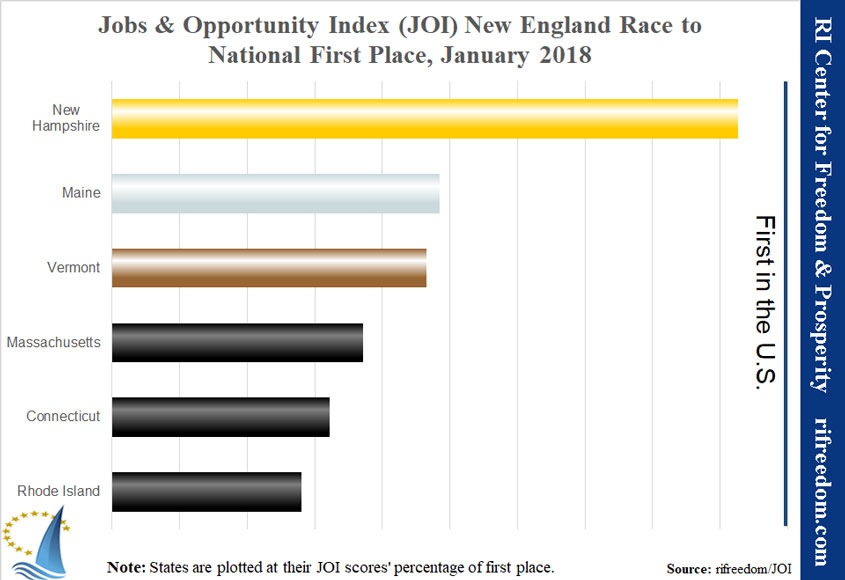
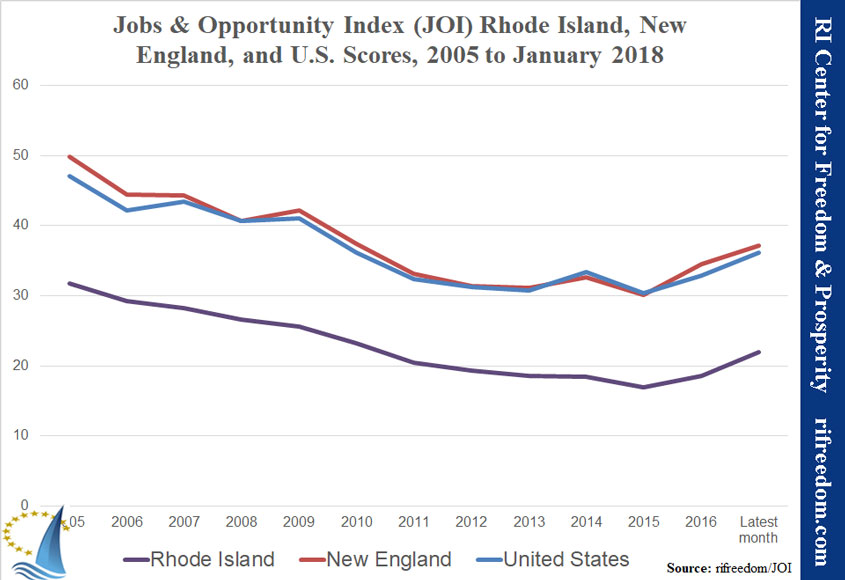
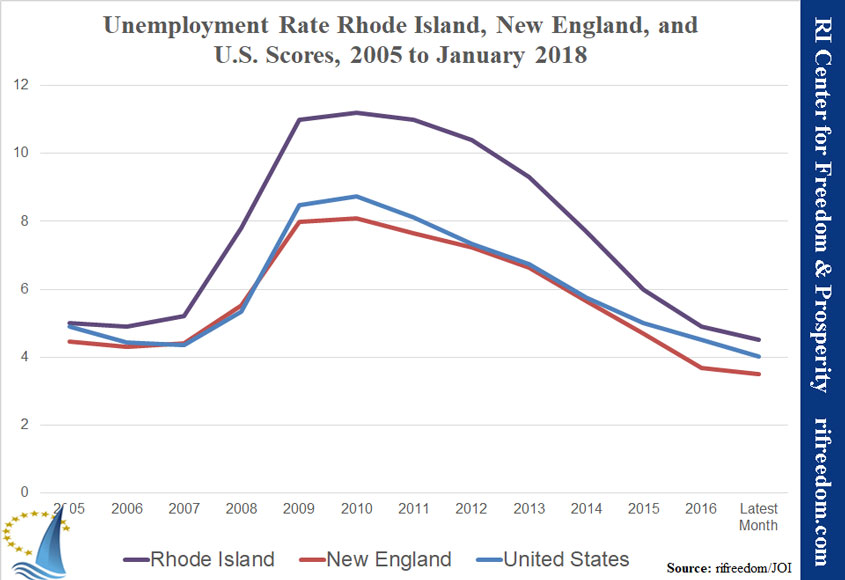

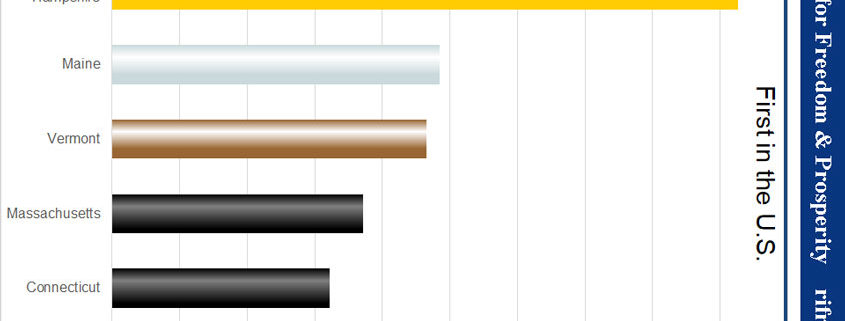
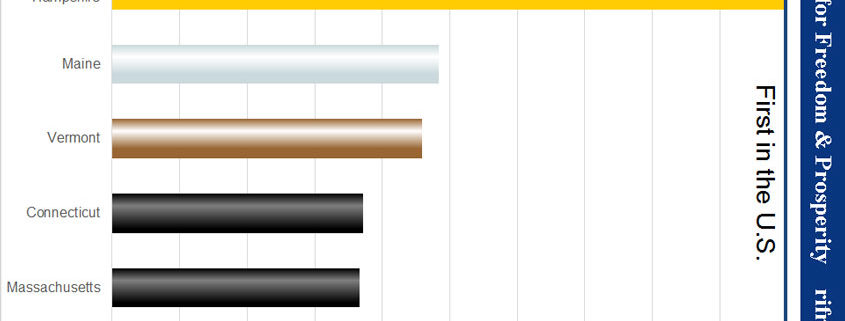
 Despite boasts of a strengthening state economy based on its January unemployment rate of 4.7%, a closer look at the data reveals a major underlying problem that is often overlooked: Since 2007 U.S. employment and labor force participation has risen by 4-5%, while Rhode Island saw an opposite decrease by 4-5% in these same categories over the same time period.
Despite boasts of a strengthening state economy based on its January unemployment rate of 4.7%, a closer look at the data reveals a major underlying problem that is often overlooked: Since 2007 U.S. employment and labor force participation has risen by 4-5%, while Rhode Island saw an opposite decrease by 4-5% in these same categories over the same time period.